When you log the extra mile, do the extra workout, add the extra group ride or sneak in another race onto a packed schedule… What are you trying to prove? I found myself asking, well, myself this exact question last week when I was trying to do a big week of training and a ton of extra work in preparation for an even bigger training block. I wasn’t asking it about training, at the time, though. I was standing at a light waiting to cross the road while I cruised around downtown on my literal errand run (my easy run where I actually toss a pack on and hit the bank/post office/wherever else I can just run my errands without needing to carry excessive amounts of stuff). I had my phone in hand, and rather than just waiting for the light and enjoying the sunshine and the short break, I found myself pulling up Slack to check what was going on with a story I’d submitted right before I left on the run.
Naturally, a lot had been going on. Or at least, it appeared like it had. I felt the jump of panic in my belly, and naturally, overreacted to a query by replying to say I’d be back in 20 minutes and would be right on it. Luckily, my run was on the short side and I wasn’t cutting it short by heading home at that point. I’d done my errands, and heading back was the plan anyway. But instead of enjoying the last couple miles, running along the waterfront, my brain went back into writer mode, the story running through my head, the rest of my to-do list taking up space once again. And it occurred to me: What was I trying to prove by adding to that Slack thread, anyway?
Ironically, I’m in the middle of re-reading Essentialism by Greg McKeown, and in it, he talks about editing out the non-essentials. And with editing, he adds, sometimes the right thing to do is nothing at all. If I hadn’t checked my phone, what would have happened? Nothing. I would have finished my run feeling good, probably more clear-headed and ready to actually get back to it. If I hadn’t responded to the thread, what would have happened? Nothing. No one would have even noticed that I was out for another 20 minutes, but because I put it out there, I felt as though a timer was ticking until I was back to my desk.
What Are You Trying to Prove? In this case, I was trying to prove that I’m a good writer, super on-the-ball and ready to crush any assignment. True enough, but would have remained true if I hadn’t looked at my phone.
What Are You Trying to Prove… And to Who? In this case, I can definitely say that on the surface, it looked like I was trying to prove something to my editors. But deep down, I am very well aware that they weren’t sitting on tenterhooks waiting for my response. It could have waited—but I was trying to prove to myself that I’m that good, on-it writer.
So, that’s a pretty obvious work example. But what about in our training lives?
What Are You Trying to Prove?
I think this is a good question to ask when you’re thinking about your WHY, because the way I see it, this is the “shadow WHY.” (Bear with me.) We talk a lot about our WHY, and how important it is. But I think behind most WHYs, there’s a dark side, the one that has the potential to tip you into overtraining, overdoing, pushing too hard, signing up for too much, pushing through illness and injury. On paper, you may list your WHY as wanting to see what your body is capable of doing and pushing your limits. But once you ask, “what are you trying to prove?” the answer is a little more blurred. I’ve found that “What are you trying to prove” is more rooted in our insecurities, the stuff that got to us when we were young (whether actual trauma or just growing pains), the downside of our virtuous WHY that’s rooted in comparison and envy.
Another way to look at it is that what you’re trying to prove is related to the outward effects of whatever you’re doing. When I’m adding an extra message in Slack (and checking Slack on my run), I’m trying to put an outward-facing signal out there that I’m a real, committed writer. But if my WHY is really to be a serious, committed writer, I am damn well aware that Slacking away doesn’t make me a better writer. Clearing my head on my run and getting back to work feeling refreshed is what makes me a better writer.
In athletics, this might look like: Why do I need to sign up for five events because my friend is signed up for four? What am I trying to prove when I add extra miles to a long run to stay with my friends rather than sticking to a training plan?
Let me be clear: Going for goals is good. Consistent training is good. Striving to be better is good. But it’s important to occasionally pause and ask yourself what any of this really means to us. What are we trying to prove, and who are we trying to prove it to? Answer that, and then think about if that answer really sits well with you, or if there’s some reorganizing of goals/plans/habits/routines that needs to happen to bring you more in touch with your own personal WHY, rather than how you’re trying to appear to the rest of the world.
You may not find anything, but I’ve been finding the question immensely helpful these last couple of weeks and wanted to share. If you do find it helps, let us know in the comments or over on Instagram!





